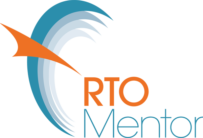Years ago we had a training qualification that taught us to stand in front of a group. We spoke from the slides, transparencies or whatever notes we had in front of us. Whilst technology has shifted and moved along in leaps and bounds, trainers may not have. Often trainers have remained standing and talking in front of the class.
Trainers’ training and development is essential for your organisation’s success. When a trainer engages with the students it means people start to rave about you. So it is important for you and your bottom line, but let’s look at the other benefits.
Most people want to learn new things, and grow as professionals. Most people are interested in improving the way they do things. Most people also enjoy connecting with their students and creating a team like environment. This builds trust and stability, and also improves the retention of knowledge. By providing them with Professional Development (PD) sessions to improve their training connection, they are gaining skills to help their students, AND they are being supported and learning.
So when the RTO invests in the development of their trainers, both the company and the individual can reap great rewards. A recent study published by NCVER shows that 46% of trainers don’t feel supported by managers in their professional development.
This improved knowledge and skills often tends to flow through to other trainers within the RTO, it creates a team within business. It brings employees closer together, strengthens the culture within the business, and helps individuals to work with collaborators or mentors within the organisation. With rapid regulatory changes having the connection at this level will assist with consistency in quality and compliance.
It is important to foster a learning culture at your organisation, one where expectations are clearly set from the outset. Have your PD vision drawn up for your training staff, whether they are contractors or employees. Make sure the the benefits for the employee and for the organisation are shared.
So how are you developing a solid organisational PD plan for your trainers? In the ASQA Users Guide they relate a story of an organisation that requires a minimum of 20 hours formal PD in training and assessment each year. each trainer must seek approval prior to the selected activity being used towards those 20 hours. This ensures the RTO has a say in the suitability.
Another great way to bring the team together and to share the learnings is to have a plan in place for the transfer of knowledge back at the workplace. This is a successful way of increasing knowledge, building the team and ensuring there is consistency in your training and development approach.
